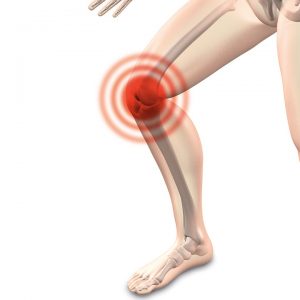Why Does My Knee Hurt?
Today Longevity Exercise Physiology Drummoyne, Edgecliff, Marrickville, Bella Vista, Randwick, Lindfield and Balmain look at the possible reasons why your knees might be giving you trouble!
Without having a proper diagnosis of a knee injury through a doctor or physiotherapist, it can be difficult to pinpoint the reason why someone’s knee is painful – however as an experienced exercise physiologist these are just a few common reasons and common conditions that can contribute to knee pain.

Poor muscle control/muscle imbalances
A very common theme amongst those with knee pain is often poor control through the gluteals (buttocks) and quadriceps. Often it is the result of muscular imbalances due to poor posture, poor alignment through the lower limb or a compensation in gait or walking pattern. The gluteals are very strong and powerful muscles and work together with the muscles in the pelvis and hip to keep the knee in correct alignment. The good news is, with some regular strengthening this can be rectified to provide more support for your knee.
Osteoarthritis
Osteoarthritis can often be associated with ageing, however getting older doesn’t automatically mean sore knees. The cartilage which is a thin layer of protective tissue covering the ends of the two bones that form the knee can deteriorate over time, leaving the bone end exposed and susceptible to irritation during movement. This may be the result of an old injury or lots of repetitive activity over the years. Unfortunately, cartilage is a tissue that the body does not replace over time, but by strengthening the surrounding muscle groups this can aid in improving the knee stability and reduce the need for a potential knee replacement later down the track.
Old injuries such as a meniscus injury
Old injuries can rear their ugly head as you get older, and a common one we see as exercise physiologists is a meniscus tear. Treatment of meniscus tears has changed over the years and what was once recommended may not be recommended now e.g. surgery. Based on your circumstances and the extent of the meniscal tear, some patients are recommended to have it completely removed, however others are recommended to manage it through physiotherapy and conservative methods. Either way, some form of active rehabilitation is important – no matter how acute or chronic the injury is.
Whatever trouble you are having with your knees be it walking up and down the stairs, getting up off the sofa or walking – there is something you can do about it. It’s best to have a thorough assessment by one of our experienced exercise physiologists who can identify the areas that are most important for you to work on to improve your knee pain – and most importantly get back to living pain free!
Contact Longevity Personal Training and Exercise Physiology Edgecliff, Lindfield, Marrickville, Randwick, Drummoyne, Balmain, Bella Vista on 1300 964 002 to enquire today.
Written by Susannah Mah-Chut

